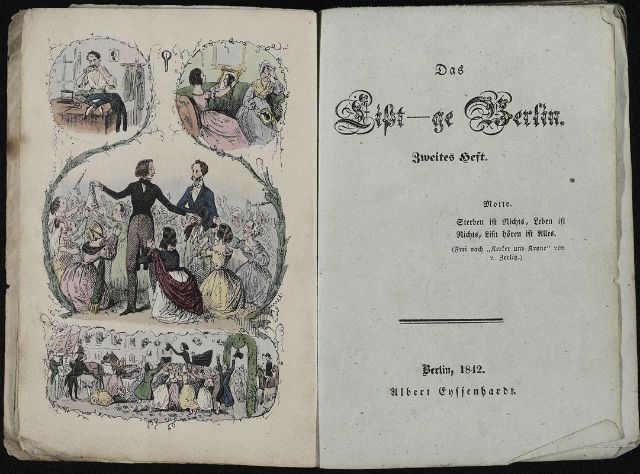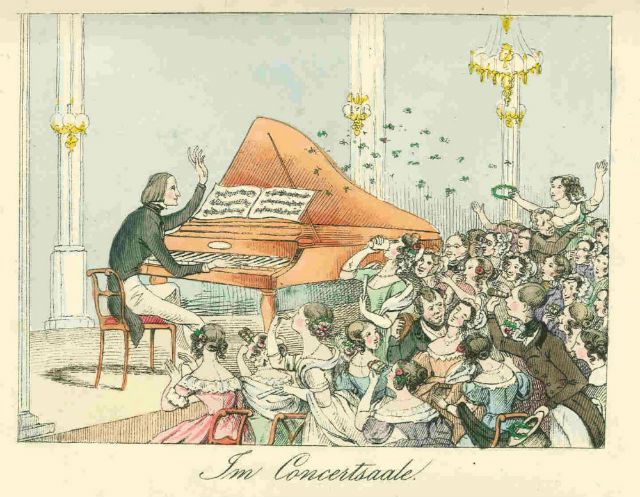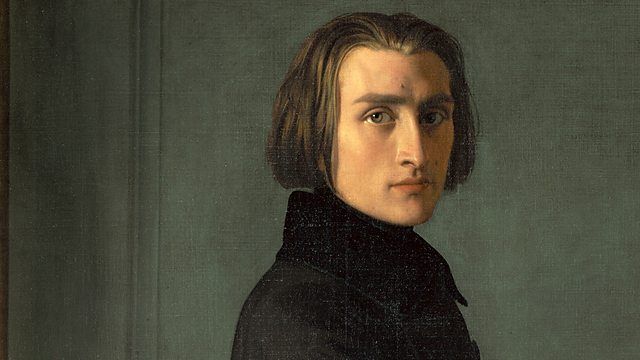In 1820, at age nine, Franz Liszt performed at his first public concert. Like Mozart, he went on to amaze audiences across Europe with his prodigious talent. His youth and his skill drew many comparisons to Mozart. Alphonse Louis Dieudonne Martain-ville, writing for Le Drapeau blanc, went so far as to declare himself a believer in metempsychosis: “I am convinced that the soul and spirit of Mozart have passed into the body of young Liszt.” (Source: Ernst Burger’s Franz Liszt: A Chronicle of his Life in Pictures and Documents)
Read: The Best of Franz Liszt
In his late twenties, Liszt embarked on an eight-year touring period that ranged from Spain to Russia and everywhere in between. His passionate concerts inspired rapturous fandom. In 1844, Heinrich Heine retroactively christened this fervour, “Lisztomania”. Mozart be damned. In this, Liszt was like no one the world had ever seen.
Today, we think of Elvis or the Beatles as forerunners of modern superstars but Franz Liszt was the true pioneer. After his concerts in Berlin in 1841, Liszt scaled hitherto unknown heights of celebrity. A. Eyssenhardt’s Berliner Witze, Volumes 9-11, contain caricatures of this ascent under the title “Das Liszt’ge Berlin”.

Women worshipped his image and attempted to forcibly procure cuttings of his clothing or his dreamy shoulder-length hair. Broken piano strings could be made into bracelets. Some stored his cigar butts in their cleavage or emptied his tea dregs into their scent bottles (Source: Alan Walker’s Franz Liszt: The Virtuoso Years, 1811-1847). When Ernst Burger writes that “many women literally threw themselves at him,” he means that women literally threw themselves. Literally. By 1842, according to Charles Dubois, a Liège banker witnessing Liszt’s visits to Paris and Belgium, Liszt was too popular to go out on foot, “but when he was seen in a carriage people would unharness the horses and pull the vehicle themselves.” (Source: Burger) In his memoirs, Hector Berlioz recalls meeting Liszt in Prague in 1846, having to physically restrain his drunken friend from starting a duel and admiring the man’s ability to sleep until half past eleven the next day despite having a concert at noon. His performance, of course, was brilliant. “Verily, there is a God… for pianists,” Berlioz mused. (Source: Derek Watson’s Franz Liszt)

At the ripe old age of thirty-five, having generated enough drama to sustain an HBO series for several seasons, Franz Liszt retired from life as a concert pianist in 1847.
His passport, issued before the era of photographs, did not contain a physical description. It merely said, “Celebritate sua sat notus.” Sufficiently well known through his celebrity. (Source: Burger)

